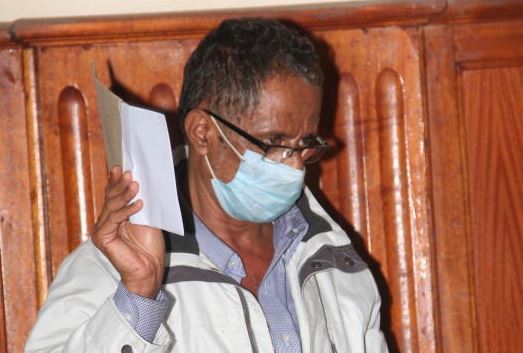×
The Standard e-Paper
Home To Bold Columnists

Mansur Mohamed at Millimani Law Court. [Edward Kiplimo, Standard]
Director of Public Prosecutions Noordin Haji waded into uncharted waters when he executed a decision to legally hand over a Kenyan citizen to the US to face charges of wildlife trafficking.







